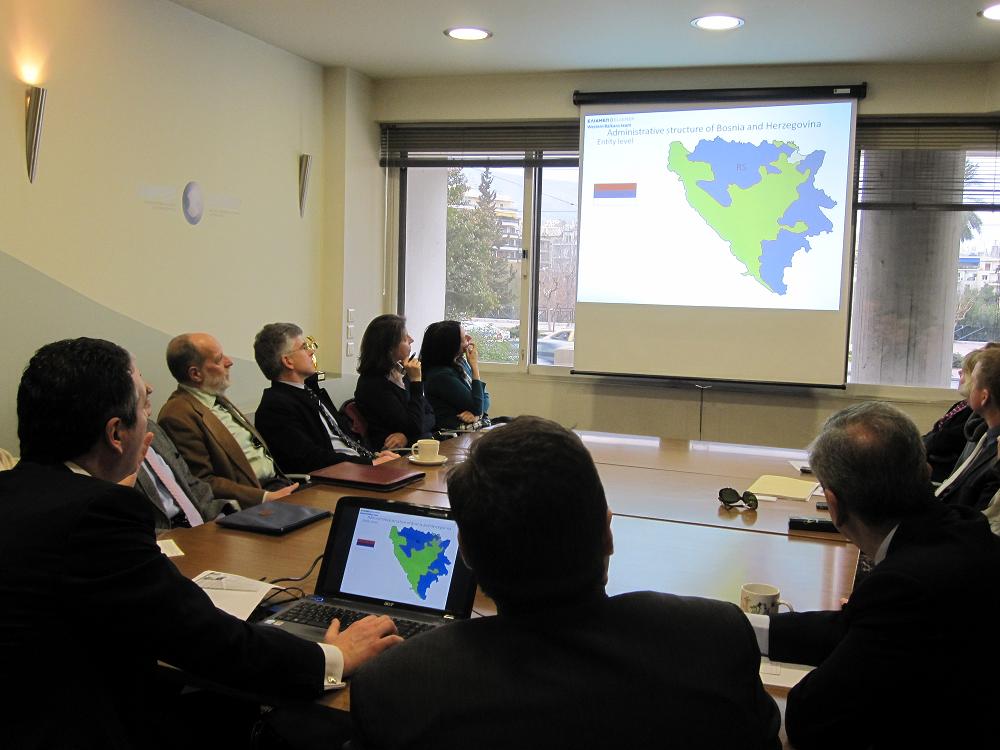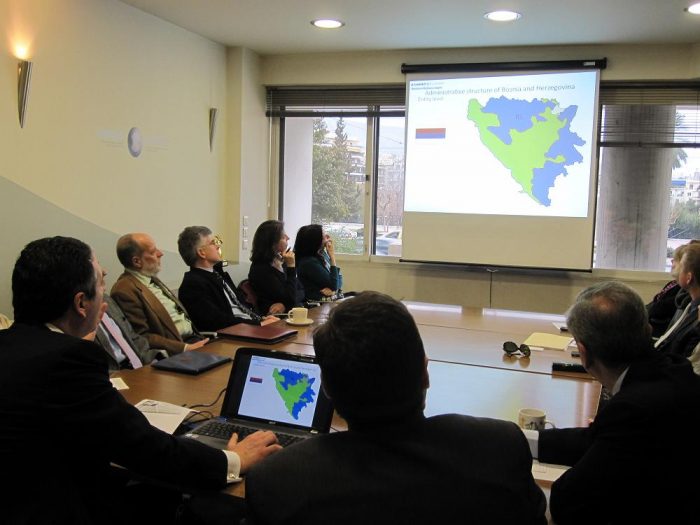 On Monday 20 February 2012 ELIAMEP invited H.E. the Bosnian Ambassador in Greece Dr. Boro Bronza. The Ambassador analyzed the prospects and challenges in the European accession process of his country. The audience consisted of academics, members of ELIAMEP and several representatives of diplomatic missions in Greece, including all Ambassadors of the former Yugoslav republics.
On Monday 20 February 2012 ELIAMEP invited H.E. the Bosnian Ambassador in Greece Dr. Boro Bronza. The Ambassador analyzed the prospects and challenges in the European accession process of his country. The audience consisted of academics, members of ELIAMEP and several representatives of diplomatic missions in Greece, including all Ambassadors of the former Yugoslav republics.
In the beginning Dr. Armakolas, ‘Stavros Costopoulos’ research fellow and head of the Western Balkans team of ELIAMEP, gave a 10-minute introductory presentation on the ethnic composition of Bosnia and Herzegovina (BiH), its administrative structure as well as the current political context, as formed after the last general elections of 2010.
In his lecture, H.E. the Bosnian Ambassador compared his country with Belgium, also a country with salient ethnic divisions and extensive decentralization of state power. As in Bosnia, it took the parties in Belgium several months to form the central government. However, while Belgium managed to go through and even have a successful EU presidency during the period without a new government BiH was during the same entirely paralyzed. He also referred to the pending constitutional reform, especially to the provisions regulating the election of the state presidency, which as the European Court of Human Rights has ruled have to be modified to prevent the exclusion of minorities. Ambassador Bronza also spotted the success stories, such as the work of the state Defence Ministry and saw some optimism after the recent agreement on the formation of the central government. Still, he assessed this agreement as dictated by the need to have a government and not as part of a long-term EU strategy. In his view, there is virtually no Euro-skepticism in BiH but at the same time there isn’t necessarily enough commitment for all the accession-orientated reforms.
The lively discussion that followed touched upon the country’s dependency on foreign aid, the factors that press towards reform as well as the ‘Greek syndrome’ that casts its shadow over BiH and the Western Balkans at large. The various Western Balkan Ambassadors present offered their views on the challenges that await the region after Croatia’s EU accession. The participants expressed the hope that it will have a positive influence, but they also admitted that it entails several repercussions on Bosnian exports to Croatia, its major trade partner.



